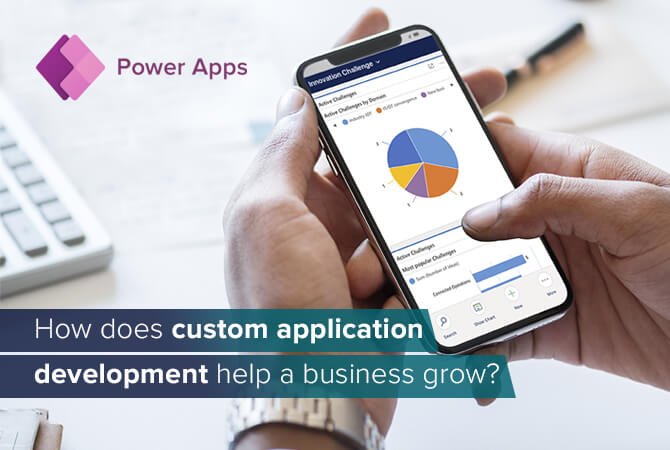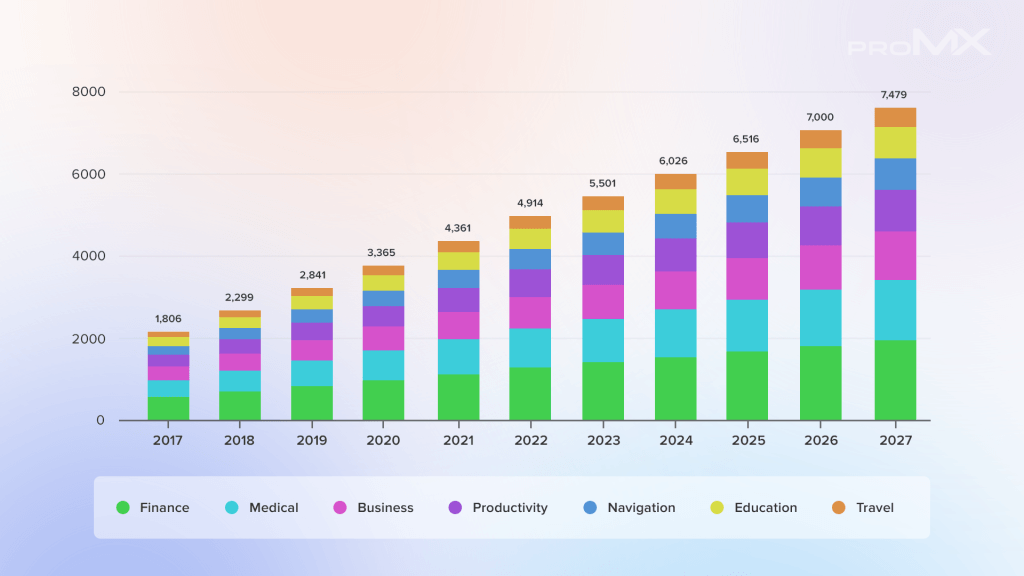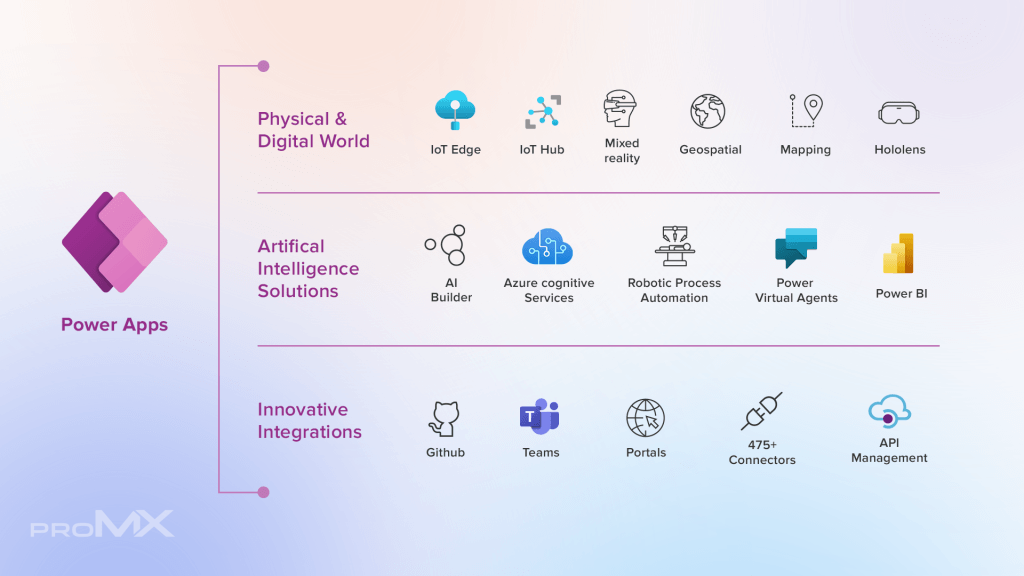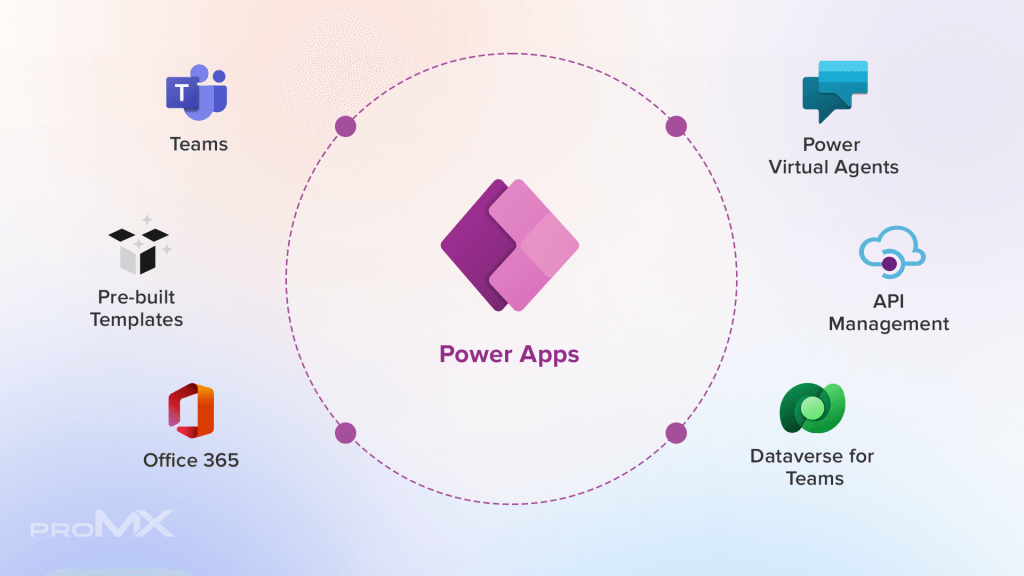
Power Apps and mobile app development: How does custom application development help a business grow?
Content
Businesses without custom applications and mobile app solutions face significant hurdles. Manual processes hinder efficiency and increase costs, while limited customer outreach erodes competitiveness. This leaves them struggling to adapt to market dynamics. In today’s digital age, custom application development has become an integral part of business growth strategies. Custom applications, tailored to an organization’s specific needs, have the potential to revolutionize operations, enhance productivity, reduce costs, and ultimately drive revenue.
Example: Imagine a mid-sized manufacturer using traditional or legacy inventory management. Inaccuracies cause stock issues, impacting efficiency and revenue. Inventory tracking is labor-intensive and error-prone, leading to frequent lack of operational performance. This not only puts their market reputation at risk but also results in profit loss due to missed sales opportunities and excess carrying costs.
Custom and mobile apps offer streamlined inventory management and growth opportunities.
This is where Microsoft Power Apps comes into play, a robust low-code development platform, plays a pivotal role in empowering any business to create custom applications without the need for extensive coding expertise.
In this article, we’ll explore the profound impact of custom application development, its benefits, the challenges it addresses, and how Power Apps, in particular, is transforming the landscape of business growth through mobile app development.
The benefits of custom application development for businesses
Custom application development is a transformative force in the modern business landscape, offering a wealth of advantages for enterprises navigating a fiercely competitive environment:
- Productivity and efficiency: In today’s fast-paced world, businesses need every edge they can get to stay ahead. Custom applications streamline workflows, removing bottlenecks and automating routine, time-consuming tasks. This empowers employees with user-friendly tools that simplify complex processes. The result? A significant boost in overall productivity and operational efficiency. Staff can now focus on high -value tasks, driving innovation and growth.
- Solutions tailored to customer needs: One size rarely fits all in the business world. Custom applications are designed from the ground up to address an organization’s unique requirements. This tailoring ensures that the apps align perfectly with existing business processes and objectives. Instead of contorting operations to fit generic software, custom apps adapt seamlessly to the specific needs of the business, promoting efficiency and effectiveness.
- Reduced costs: While the initial investment in custom app development may appear substantial, it often pales in comparison to the long-term cost savings. By automating manual labor, custom applications eliminate the need for extensive manpower, reducing labor costs significantly. Moreover, they minimize errors that can be costly to rectify. Businesses find that custom apps pay for themselves through these reduced costs in the long run.
- Increased revenue: Efficiency and cost reduction are only part of the story. Custom applications also have the power to contribute directly to revenue growth. They enhance customer experiences by ensuring timely responses and personalized interactions. Data-driven insights mined from these apps enable businesses to spot opportunities for upselling and cross-selling, thus directly impacting the bottom line.
- Competitive advantage: In today’s ever-shifting marketplace, agility is a prized asset. Businesses that harness custom apps gain a crucial competitive edge. These apps allow companies to adapt swiftly to market changes, stay ahead of competitors, and provide exceptional value to customers. They empower businesses to respond proactively to shifting consumer preferences, technological advancements, and emerging trends, ensuring they remain leaders in their respective industries.
In essence, custom application development isn’t just a technological investment; it’s a strategic one. It’s a means for businesses to achieve higher productivity, personalized solutions, lower costs, increased revenue, and ultimately, a competitive advantage that positions them at the forefront of their industry.

App development challenges and how to overcome them
Navigating the landscape of custom application development in today’s business transformational environment presents its own unique set of challenges. Firstly, defining technical requirements demands a deep understanding of the organization’s existing infrastructure and future goals. It’s akin to charting a course through uncharted waters, where precise navigation is crucial.
Secondly, managing developers can be likened to orchestrating a symphony. Coordinating the efforts of multiple team members with diverse skills and expertise requires careful conductorship.
Lastly, ensuring scalability is a bit like architecting a building to accommodate future growth. It necessitates forward-thinking and flexibility, ensuring that as the business expands, the applications can seamlessly adapt.
In this dynamic landscape, overcoming these challenges isn’t just a necessity; it’s the key to unlocking the full potential of custom application development. Collaboration, strategic planning, and the right tools, such as Microsoft Power Apps, are the compass and anchor for businesses embarking on this transformative journey.
Power Apps and its significance in app development

Microsoft Power Apps is a game-changer in the realm of custom application development. It offers several key advantages:
Using Power Apps to automate business processes
Power Apps enables organizations to create apps that automate a wide range of business processes. From approval workflows to data entry forms, automation through Power Apps leads to time and resource savings.
Imagine seamlessly orchestrated approval workflows that not only reduce bottlenecks but also free up your team’s precious time. Visualize data entry forms so intuitive that they practically complete themselves. With Power Apps, this level of automation isn’t just a dream; it’s a tangible reality. It’s about more than saving time and resources; it’s about empowering your workforce to focus on what truly matters – innovation, growth, and staying ahead of the competition.
Integrating Power Apps with other Microsoft products and services
Power Apps seamlessly integrates with Microsoft’s ecosystem of tools and services, including SharePoint, Office 365, and Dynamics 365. This integration empowers businesses to build comprehensive solutions that cater to their diverse needs. Integrating Power Apps with Microsoft’s suite of tools is like creating a finely tuned orchestra in the realm of business transformation. Imagine a company where data flows effortlessly between Power Apps, SharePoint, Office 365, and Dynamics 365.

Departments collaborate seamlessly in a digital space, empowered by real-time insights and communication tools. Every business need, from automation to customer engagement, finds a tailored solution. The outcome? An agile, intelligent organization that thrives in today’s competitive landscape, all thanks to Microsoft’s integrated ecosystem.
Mobile App development with Power Apps
Mobile applications are pivotal in today’s business landscape, enabling organizations to reach customers directly and offer on-the-go solutions. With Power Apps, businesses can develop mobile apps tailored to their industry or specific business functions. Whether it’s creating a mobile storefront or a field service app, Power Apps simplifies mobile app development.
Best practices for using Power Apps and mobile app development to grow business
To illustrate the practical application of Power Apps, let’s consider a few companies that have harnessed its potential for business growth:
Contoso Retail: Contoso Retail, a retail chain, implemented Power Apps to create a mobile app for in-store inventory management. This not only streamlined stock tracking but also improved the overall customer shopping experience.
AdventureWorks Manufacturing: AdventureWorks Manufacturing leveraged Power Apps to develop a custom app for production line monitoring. This app provided real-time data on machine performance, leading to reduced downtime and increased production output.
Northwind Traders: Northwind Traders utilized Power Apps to build a customer relationship management (CRM) app. This app consolidated customer data, enabling the sales team to deliver more personalized and effective sales pitches.
Conclusion
Custom application development, coupled with the capabilities of Microsoft Power Apps, empowers businesses to innovate, optimize operations, and thrive in today’s competitive landscape. By tailoring solutions to specific needs, automating processes, and embracing mobile app development, organizations can unlock new growth opportunities and stay ahead of the curve. As businesses continue to evolve, custom applications created with Power Apps will undoubtedly play a vital role in their success.










